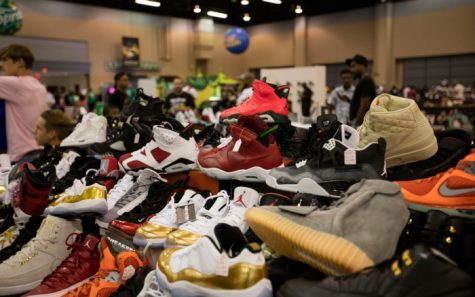Op-Ed: How to believe women in the era of the #MeToo movement
October 15, 2018
The testimony of Judge Brett Kavanaugh and Christine Blasey Ford captured many people’s attention around the country through social media.
Ford appeared at the Senate hearing to address her allegations of sexual assault against Kavanaugh. Ford alleges the assault took place in 1982, at the hands of Kavanaugh and his friend Mark Judge.
Upon watching and following the hearing, it was clear that no matter how poorly and overly defensive Kavanaugh appeared to be and despite the strength of Ford’s claims, the Republican senators were in favor of Kavanaugh’s confirmation to the Supreme Court.
There are so many powerful men who never and likely will never experience sexual assault. Yet, they act as if they are experts on how a victim of sexual assault should come forward to pursue justice.
Throughout American culture, many men in power openly and bluntly support known rapists and abusers.
The important question is “why?” Why are they so quick to question and judge a woman’s motive for coming forward with her story? Could they not simply hold the abuser accountable for his actions?
When a woman is sexually assaulted and turns on the TV, media, or other sources of news, she will see how women with similar stories are treated after coming forward.
She will see how those who come forward can be called liars, gold digger, sluts, overdramatic, and delusional.
Because of what she may see or hear, she will fear coming forward. This fear causes sexual assault to continue to thrive.
Fear of being shamed and judged for something one has no control over, something that is not one’s fault keeps many from coming forward. Many times the woman is shamed instead of the perpetrator.
But when a man goes to a party and has a “little too much to drink” and does inappropriate things to an unconscious or non-consenting woman, he will find his behavior validated.
If he turns on the news he will see powerful men defending similar actions. He sees how they would do anything they can to help him. It can validate his unacceptable behavior.
He may see nothing wrong with his actions and continue to act that way.
The saying “boys would be boys” continues to be an excuse used by many. This notion is pervasive.
For example, if the assault happened years ago the defense for the perpetrator is “why ruin his life for a mistake he made when he was a kid?”
Or when the assault happened not long ago the defense for him is that it’s not fair to ruin a young man’s future.
According to the National Sexual Violence Resource Center, the prevalence of a false reporting of sexual assault is between two and 10 percent.
However, one in five women have or will experience sexual violence at one point in their lives.
By contrast, the rate of men who are sexually assaulted is near one in 71.
It is a never-ending cycle that continues to shame women into staying silent.
The Kavanaugh hearing is just another example.
Everyone experiences trauma in different ways and it takes a lot of courage to share personal accounts of violence.
The best thing to do when a survivor of sexual assault comes forward is to believe them.








